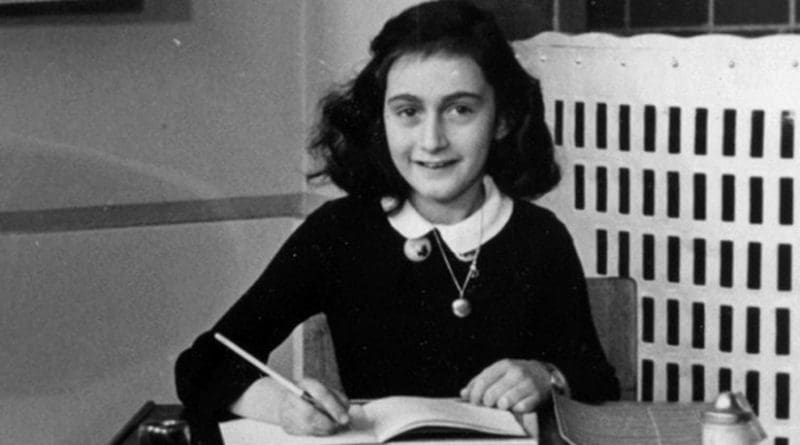Croatia: School Removes Anne Frank Exhibition
By Sven Milekic
A travelling exhibition about Holocaust victim and diarist Anne Frank was removed from a high school in the coastal town of Sibenik after the school’s director complained that it portrayed the Croatian fascist Ustasa movement negatively, local media reported on Thursday.
The educational exhibition for pupils depicts the life of Anne Frank but also shows the broader context of World War II and the Holocaust, as well as its effects on Croatia and the region, highlighting crimes committed against Serbs, Jews, Roma and anti-fascist by the Ustasa.
School director Josip Belamaric asked the organisers of the exhibition, the Hermes NGO – local partner of the Amsterdam-based Anne Frank House museum – to remove six panels describing the local context of the war.
“According to these panels, it seems that the Ustasa were criminals who slaughtered Serbs, Jews, starved children, and the [Yugoslav anti-fascist] Partisans were innocent. What about the crimes committed by the Partisans?” Belamaric old local news site Sibenik In.
Belamaric asked why there were no billboards showing what happened in May 1945 when “Partisans killed Croats” in Bleiburg in southern Austria, or about the Yugoslav prison camp on the island of Goli Otok which was run by the Communists.
Maja Nenadovic from the Anne Frank House told BIRN that this was the first problem they had encountered after 23 successful exhibitions in Croatia, which attracted over 40,000 visitors.
“I am really not in the position at the moment to say if this is just an isolated incident or if this is something that we will face in Croatia more often,” Nenadovic said.
She said children should not be “served some ‘ultimate truths and dogmas’” or manipulated to take sides on events that happened 70 years ago.
The coordinator of the exhibition from HERMES, Tvrtko Pater, said on Thursday that the installation “doesn’t make any sense” without the local context.
“We know that for him [school director Belamaric] it was a problem that we didn’t show Bleiburg, but we covered that topic within the training [of pupils who acted as guides for the exhibition] because the [display] board simply doesn’t fit everything,” Pater told local media.
“We even offered the school to develop additional panels that would display parts of history that the director thought were missing, but they refused and we have, unfortunately, been forced to withdraw the exhibition,” Pater said.
Pater sent an open letter to media on Friday, claiming that there were an increasing number of cases in Croatia in which politicians and other interest groups were using history to create divisions between “us, the good ones, and them, the bad ones”.
“Removing the last six panels [of the exhibition] strengthens the idea that World War II is something that was happening to… Germans and Jews and that this war just concerns them,” he said in the letter.
“To ignore the fact that Croatia was very much part of that war is the suppression of history and we weren’t ready to take part in such a false compromise,” he added.
A German Jew, the teenage Anne Frank wrote a journal while hiding with her family in Amsterdam. She was caught by Gestapo in August 1944, along with her family, and transported to Auschwitz.
She died in the German concentration camp Bergen-Belsen in March 1945 at the age of 15. Her father discovered her diary after the war and after it was first published as a book in 1950, it became a global bestseller.


“According to these panels, it seems that the Ustasa were criminals who slaughtered Serbs, Jews, starved children…”
But… they did!
Anne Frank wasnt German but Dutch.
Anne Frank was born in Frankfurt, Germany and later on lived in Amsterdam after they fled Germany.